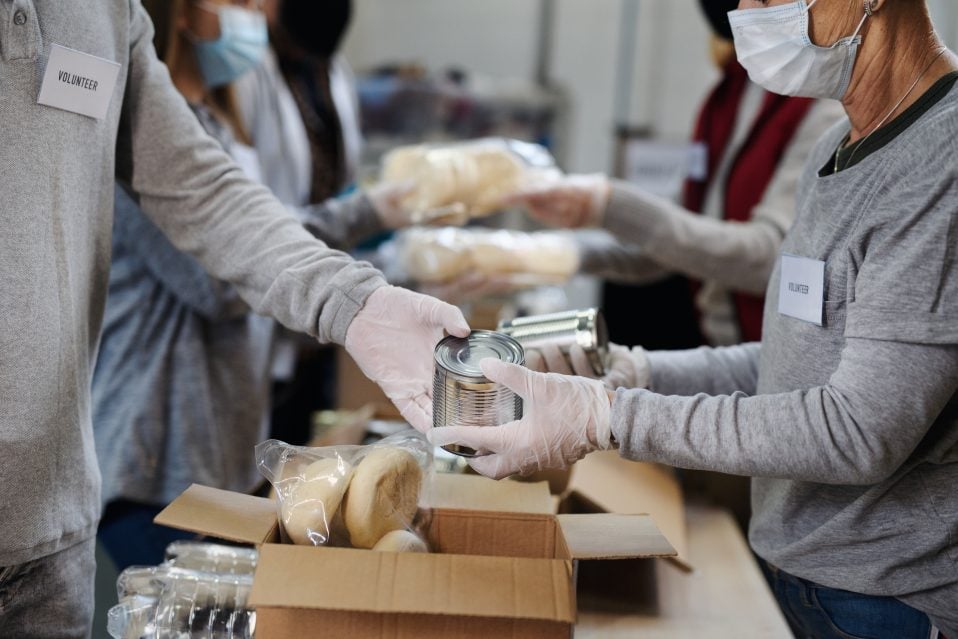Albany, NY – American Atheists rebuked New York Governor Kathy Hochul’s decision to again veto a life-saving bill that has twice passed in the New York Assembly and Senate with bipartisan support. The Recovery Options Bill (A.5074) would have required that New Yorkers ordered to enter a substance abuse treatment program be informed of their right to not be forced into religious programming against their will. For example, many atheists choose nonreligious, evidence-based recovery options, such as SMART Recovery or LifeRing.
Time and again, courts across the nation have found that 12-step programs like Alcoholics Anonymous are pervasively and overtly religious and cannot, therefore, be imposed on people by the government. The “Big Book” of Alcoholics Anonymous includes a chapter that tells atheists and agnostics they are “doomed to an alcohol death” unless they “seek Him.” The chapter goes on to deride the nonreligious as “handicapped by obstinacy, sensitiveness, and unreasoning prejudice.” According to the American Atheists-commissioned U.S. Secular Survey, 15.2% of respondents reported experiencing stigma and discrimination while undergoing religious substance recovery treatment.
Earlier this month, American Atheists officially announced the release of Andrew Miller, an atheist and Secular Humanist who was represented by the civil rights organization after he was repeatedly denied parole for his conscientious refusal to complete a religious substance treatment program that included the compulsory recitation of Christian prayers at meetings. In July of this year, U.S. District Court Judge Joseph R. Goodwin issued a sweeping 60-page decision, denying West Virginia’s motion to dismiss the case and finding Mr. Miller’s claims to be “likely—if not inevitable” to succeed. West Virginia has since agreed to remove religious requirements as a condition for parole and pay $80,000 in legal fees.
In New York, the legislation that Governor Hochul vetoed would have simply required courts to inform New Yorkers of their constitutional right to object to mandatory religious substance abuse programs. Subsequently, anyone who objected to these religious programs, including nonreligious people and religious minorities, could instead access evidence-based treatment programs free of religious coercion.
“Recovering from addiction is difficult enough without suffering through unwanted indoctrination and religious abuse,” said Alison Gill, Vice President for Legal and Policy at American Atheists.
“Governor Hochul has had two opportunities to sign this bill into law and provide meaningful, even life-saving help to constituents of all religious beliefs and none, and she has twice chosen to issue an immoral and illogical veto instead.”
According to a 2017 Gallup report, 40% of New Yorkers are nonreligious. In addition, nonreligious Americans are now the largest “faith constituency” in the Democratic Party. During the midterm elections, nonreligious Americans voted for Democrats over Republicans at a greater than 2:1 ratio, according to AP VoteCast. More recently, a survey by the Associated Press-NORC Center for Public Affairs Research found 30% of adults in the United States claim no religious affiliation.
“In New York, West Virginia, and elsewhere, Americans need to know they have a constitutional right to access nonreligious recovery options before they’re trapped in a program that violates their freedom of religion and could threaten their recovery from addiction,” added Gill.
“I am so thankful for the help I received from Secular Organizations for Sobriety. I would not be 10-years sober if a religious program was my only option,” reflected Martina Fern, a Buffalo-area resident and the Development Director for American Atheists. “Governor Hochul has yet again failed to protect the rights and wellbeing of nonreligious New Yorkers. It’s shameful.”
American Atheists worked with Assemblyman Harvey Epstein and Senator Peter Harckham, who sponsored this legislation, and national partners to ensure the bill would provide protection for both nonreligious people and religious minorities. The organization will continue investigating the use of federally-funded, faith-based recovery programs in state correctional facilities and advocating for legislation to ensure all Americans have access to life-saving treatment that does not infringe upon their First Amendment rights.







